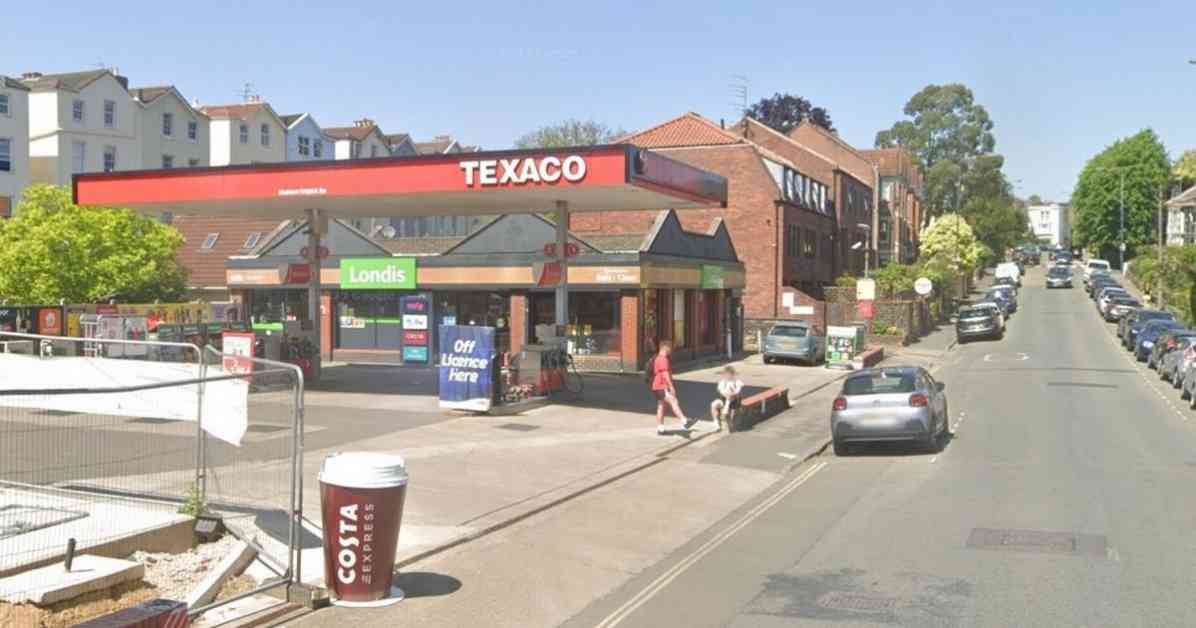Bristol Embraces the Future with EV Charging Points at Petrol Stations
Bristol City Council is paving the way for a greener future by considering the installation of electric vehicle (EV) charging points at a petrol station located in a conservation area. This innovative plan comes at a time when the city is actively seeking ways to reduce carbon emissions and promote sustainable transportation options.
The proposal includes the installation of four EV charging points at a petrol station on Hampton Road in Redland. While a similar application was rejected earlier this year due to concerns about the impact on the conservation area, the current applicants are confident that the proposed charging infrastructure will help drive the uptake of EVs in the city.
According to the applicants, the need for more charging infrastructure is crucial in addressing the growing carbon dioxide emissions and air pollution in urban areas. They emphasize that the recent surge in demand for EVs underscores the importance of expanding charging facilities to support the transition to cleaner transportation options.
However, council planning officers have raised concerns about the potential visual impact of the associated plant equipment on the conservation area. They argue that the installation of charging points could result in urban clutter and fail to enhance the historic architecture of the area. Despite these challenges, the applicants remain optimistic about the positive impact that EV charging points can have on reducing emissions and promoting sustainable transportation choices.
Alternative Learning Provision for Troubled Teenagers
In addition to the EV charging points proposal, Bristol City Council has received an application for the establishment of alternative learning provision for troubled teenagers. The initiative, led by Ambition ALP, aims to provide educational support to pupils aged 11 to 16 with social, emotional, or mental health needs that prevent them from attending mainstream schools full-time.
The proposed learning provision would convert empty offices at Premier House on Duckmoor Road in Ashton Gate into classrooms, accommodating a maximum of nine pupils per day. The program would operate from 8.30am to 3pm, Monday to Friday, during term time, offering a supportive environment for students who require specialized educational assistance.
With the onset of the COVID-19 pandemic, schools have faced increased pressure to address the social, emotional, and mental health needs of their students. This has resulted in a rise in emotionally based school avoiders who require alternative educational options to meet their unique needs. Ambition ALP seeks to bridge this gap by providing a nurturing learning environment for students who are unable to access mainstream education due to their individual challenges.
Enhancing Recreational Facilities with Floodlights at Tennis Courts
Meanwhile, plans are underway to enhance recreational facilities in Bristol with the installation of floodlights at tennis courts in Knowle. The tennis courts, located in Redcatch Park, have recently undergone refurbishment but now require additional lighting to extend playing hours and improve accessibility for the community.
Previously free to use, the tennis courts now require a nominal fee for booking to cover maintenance costs. The revenue generated from these charges will ensure the regular upkeep of the courts, making them a sustainable recreational resource for residents of Bristol.
The installation of floodlights will not only enhance the playing experience for tennis enthusiasts but also promote active lifestyles and community engagement. By providing well-lit facilities, the council aims to encourage more residents to participate in outdoor activities and enjoy the benefits of sports and recreation.
In addition to the aforementioned proposals, Bristol City Council has received applications for various developments across the city, ranging from residential projects to security enhancements at a solar farm. Each of these initiatives reflects the city’s commitment to sustainability, innovation, and community well-being. As Bristol continues to evolve and adapt to the changing needs of its residents, these planning applications signify a step towards a more vibrant, inclusive, and environmentally conscious future.

